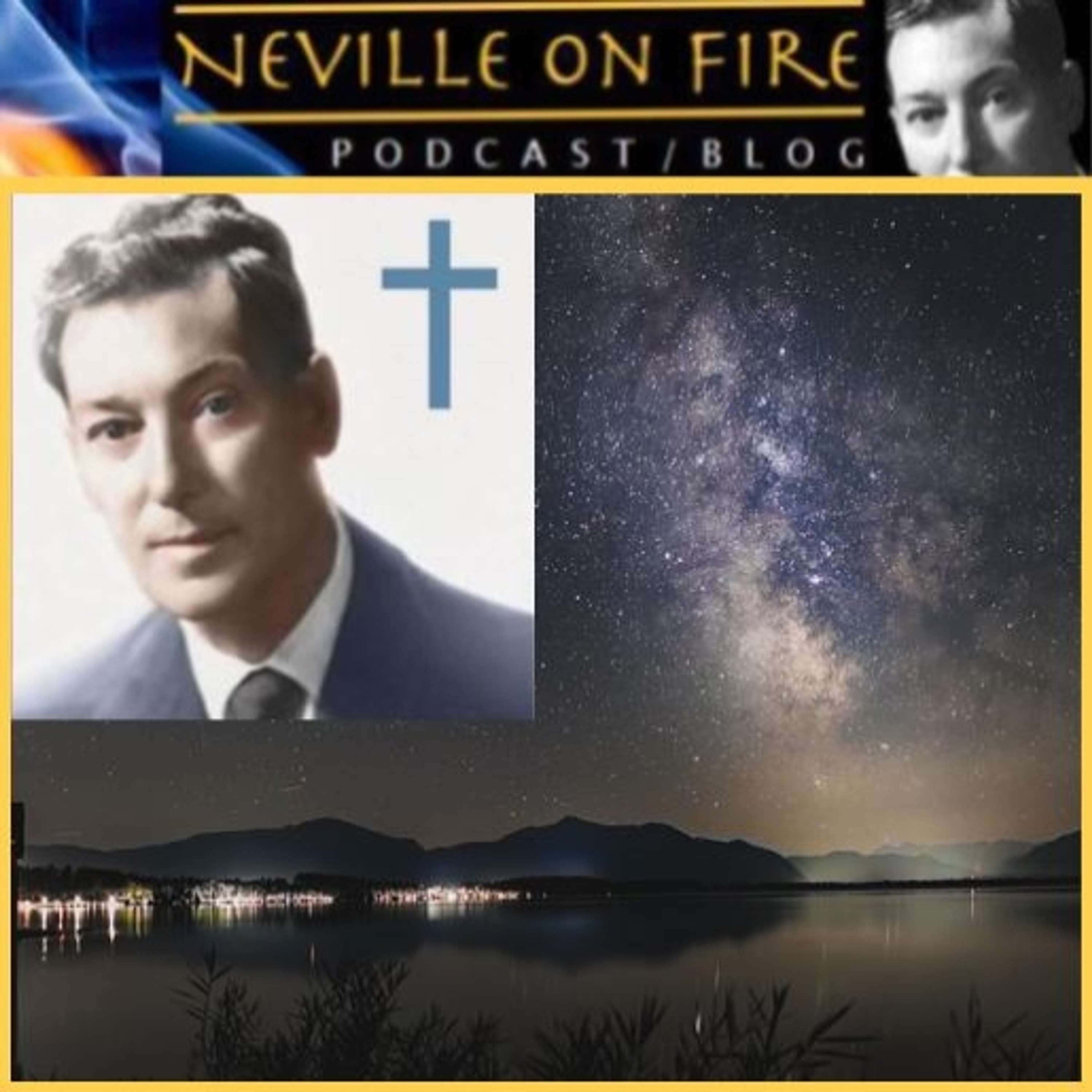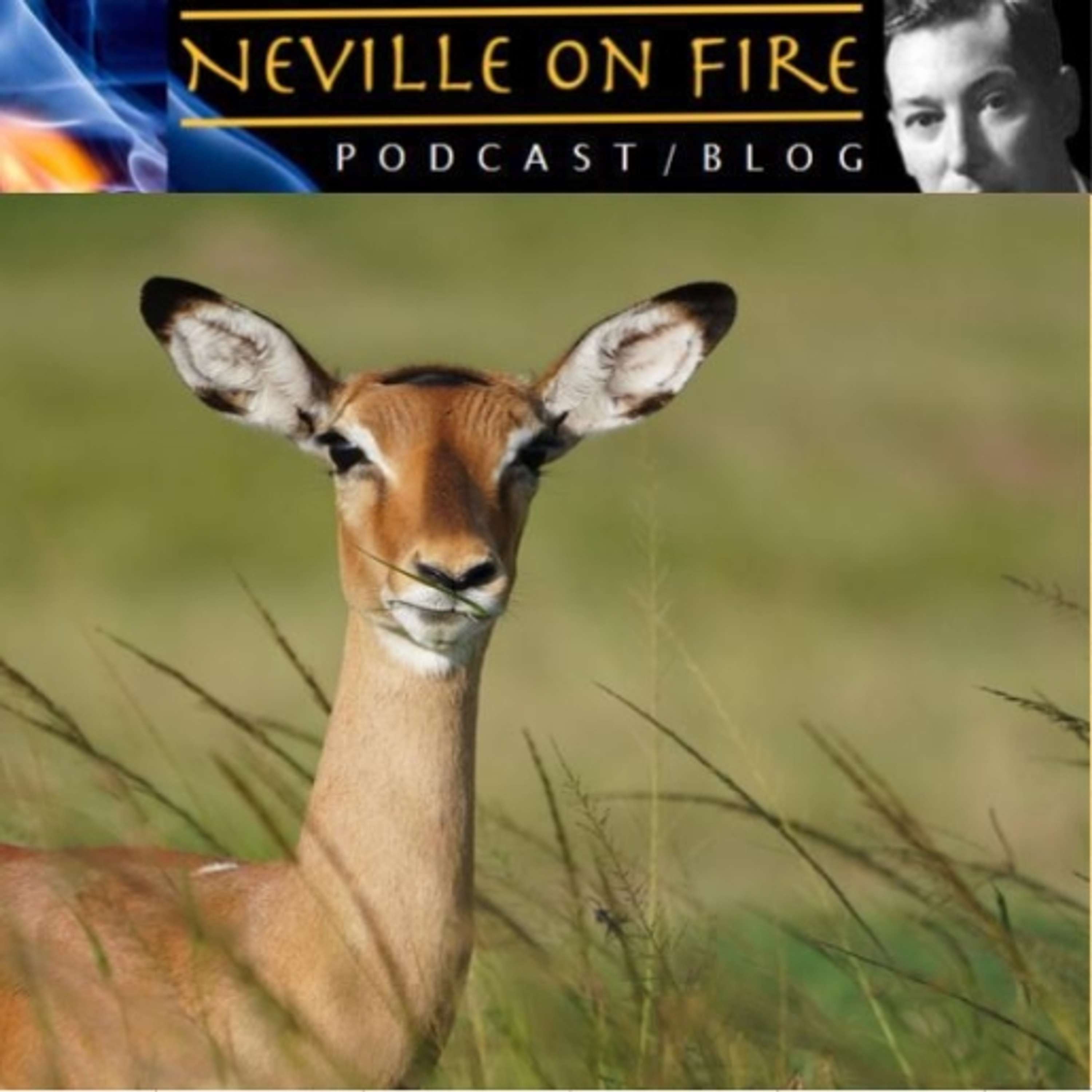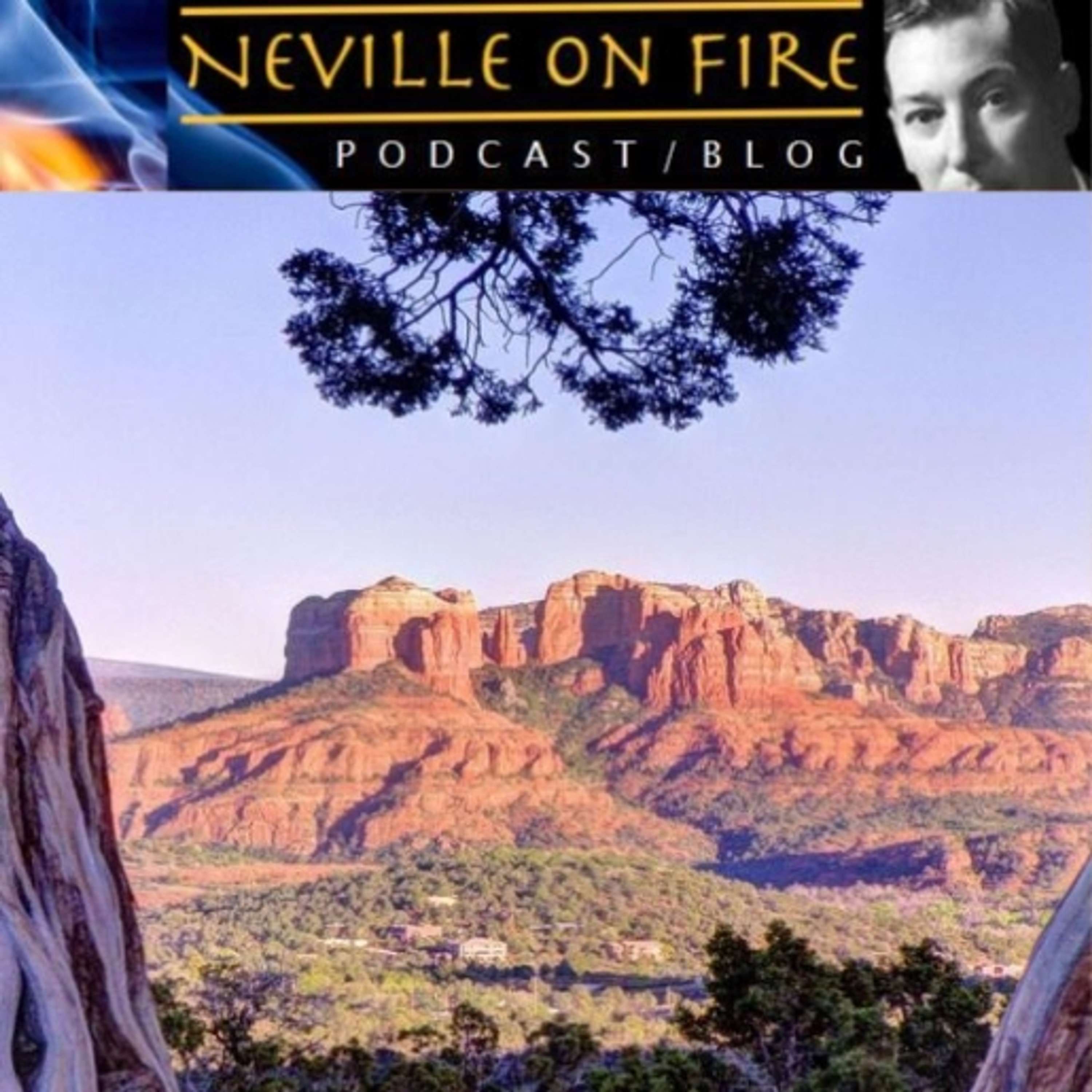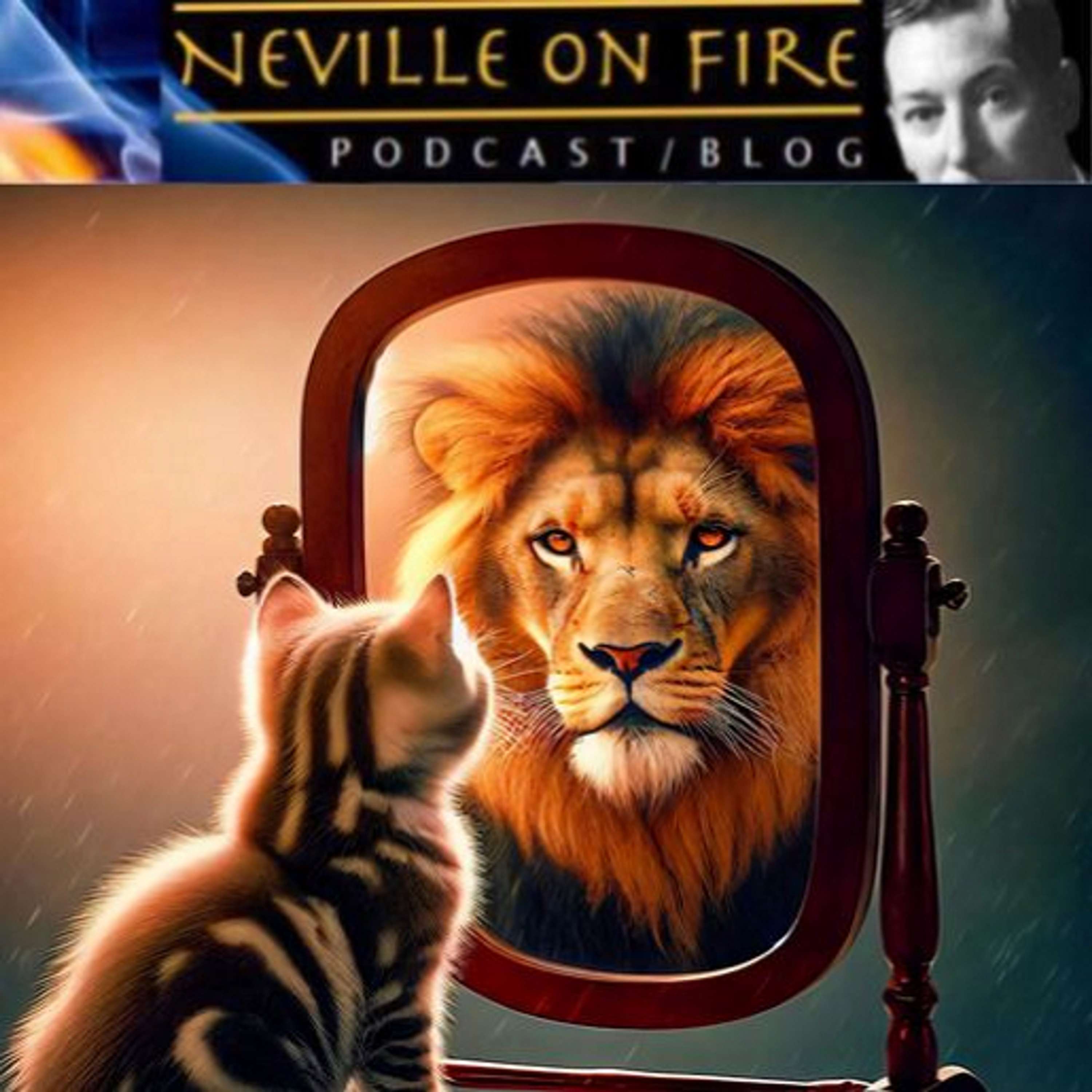Show Notes
Neville quotes philosopher Douglas Fawcett, one of the philosophers of transcendental idealism.
The secret of imagining is the greatest of all problems, to the solution of which everyone should aspire, for supreme power, supreme wisdom, and supreme delight lie in the far-off solution of this mystery.
In this podcast series, we are taking Fawcett at his word, and exploring this essential mystery. He says that this truth is “the most important, most utterly enthralling” we could hope to find.
negative motivation
1. The scope and degree of deception and control.
2. The gravity of habit in thoughts, assumptions, and narratives accepted as true.
positive motivation
3. What is the significance of embracing and consciously developing the imagination? It is not just an “add-on.” It is transformative.
4. Therapeutic function. The cause of illness is accepting reality as it appears.
5. Method... the creative state.
Progression: hypnosis; self-hypnosis (How to Meditate); Neville’s “controlled reverie”.
Don’t be too bound by semantics -- in other words, strict definitions and instructions.
6. Moving meditation.
Long form affirmation; akin to acting. Use it in movement, both as exercise and a new way to be in the world.
Summary
Quiet self realization forms a foundation for moving meditation. Consciousness and creation work together. The world should be place of wonder and marvel.
RESOURCES
Note: This episode draws on ideas from two anonymous sources interviewewd by investigative reporter Jon Rappoport (see The Matrix Revealed) who I mentioned in E16. One (“Ellis Medavoy”) is an insider in the world of propaganda creation; the other (“Jack True”) an innovativor in hypnotherapy (misnamed) where the client’s imagination is allowed expression, effecting healing where psychotherapy and analysis had failed. (This is paid content. A search on these interviews may bring up partial posts for free.)
Rappoport: The Secret Behind Secret Societies is a video of his lecture (1998); there is his book by the same title. 'Secret society' has a specific definition. Dated, you say. Well, see if this information is not actually exactly relevant for us today. It is a dual presentation: 1. an expose of the cartels dominating society; 2. the depth and power of the human imagination, and how this faculty is unrealized by the average person.
Show Transcript
[edited for clarity]
E20 How to Enter the Creative State
In today's episode I want to talk about first of all motivation, in several aspects, and then secondly about technique – how to enter the creative state.
Neville quotes the English philosopher Douglas Fawcett as follows:
“The secret of imagining is the greatest of all problems to the solution of which everyone should aspire, for supreme power, supreme wisdom and supreme delight lie in the far-off solution of this mystery.”
All right so in this podcast series that's exactly what we're doing. We're going to take Douglas Fawcett at his word and explore this hypothesis from every possible angle.
Now he says that this truth, if it is truth, is “the most important, the most utterly enthralling” truth that we could hope to find. So he's passionate about it, and so is Neville. If you think about the content of their message, then it would have to be the most fundamental concern of any human being who is a thinking person. Yet somehow we seem to be asleep to it; we don't seem to have the motivation that is equal to the significance of this practical philosophy.
Well it seems you can be motivated in a negative way and in a positive way. There's a lot of truth-telling that's going on in our society right now. How do you discern truth? Back in E7 and E8 I touched on the dark side, speaking about segments of society that might wish to turn the power of imagination to dark purposes, to control other people. Then I asked whether it's worthwhile dwelling on that so intently, because we run the risk of perpetuating whatever we impress upon the subconscious.
Despite the fact that I thought I was pretty well versed in what's going on, I was shocked when I came across some more information recently, to the effect that the scope and the degree of deception that's going on is just extraordinary. It's not just that certain interests are playing out, it's actually the reality itself – narratives – are deliberately contrived to produce a specific effect on the human psyche. I'll put a further explanation and a link in the show notes for anyone who wishes to follow up on that.
Another aspect of negative motivation, so to speak, is to try to come to grips with this question: why is it that we cannot more readily or immediately adopt a life of deliberate, consistent and positive imagining?
We've already acknowledged that the human psyche, at least the subjective mind, is 100% susceptible to suggestion. That points to the fact that we have such an ingrained habits of thought. If the narratives are controlled and we're not open to free exploration in our education, then a lot of our thought is already predetermined. A cynical view that I heard recently was that if people had more freedom, they wouldn't know what to do with it, so they have to be controlled. This is the kind of elitist thinking that's going on.
This leads me to think that there is an extraordinary gravity in our thinking, the result both of a life lived unconsciously, for years, and the entrainment the institutions.
All right, so what was the purpose in reviewing this negative aspect of motivation; in other words, seeing that a lot in our psyche – vocabulary and narratives that we accept as true – is controlled? The more you look into that, the more you discover the truth of it. Although discouraging, it can have a positive effect, in that it will jolt you, it will wake you up and make you see the degree to which you've actually been losing control of your own life.
That can lead us back to the question: all right: can we actually adopt quickly and more readily a positive attitude and start creating things that we want? The answer is yes! Let’s get to the point where we can see our way clear to accomplishing that.
All right, well let's turn our attention now to positive motivation.
What is the significance of embracing and deliberately developing the imagination? I think we tend to think of it like anything else we might study, and that is like an add-on or a bolt-on to our existing psychology, whereas I'm getting the message from different points of view that it is actually transformative in nature.
Going back to Douglas Fawcett, for example: in his view it's the imagination that contains everything else. He says that self-awareness occurs normally only intermittently – well, he's right about that – but he says it's the imagination that, rather than just being an aspect of the mind, is the wider field which renders the intermittent occurrence of self-awareness even possible.
There could be some confusion with terminology here, but I feel that Fawcett is saying that the human imagination is essential to us. Instead of just being a faculty in the corner of the mind somewhere, that we sometimes engage with, it's actually the essence of who we are.
This leads us to consider, well, how often do we actually exercise it and appreciate it? We tend to relegated it to the realm of fantasy and something childlike that's no longer needed – and this is distinctly unhealthy.
What we find is the deliberate use of the imagination (not when it is controlling you but when you are controlling it) has a therapeutic function. This is how human beings should be operating.
In this connection, let's not forget Neville's admonition about mind and speech, and his quoting the Bible where it says “the word that goes forth from my mouth shall not return unto me void but will accomplish what I please, it will prosper in the thing for which I sent it” – the point being that this is not a part-time recreational activity, it's actually the core creative function of human beings.
One example of that is given in the work of Canadian psychologist (a hypnotherapist) Lee Pulos, who has a lot of material on auto-hypnosis and visualization. He insists in many exercises on the person speaking out loud, and giving many details to describe everything that one sees in the mind's eye. In another hypnotherapist’s account (see again the show notes) the result of doing that is a return to normal function: a release of neuroses, tension and disease.
So isn't it curious that the deliberate positive imagining – vivid imagining and description of creative contents – can actually have a therapeutic effect, and signify a return to sanity and normalcy?
So that concludes the first part of the episode, where we considered motivation, both in its negative or repellent aspect, and its positive aspect. Hopefully it will inspire you to take up imagination much more seriously.
Well, in the second part, let's go into this technique: how to enter the creative state.
Now, we've already talked about many aspects of this, many sets of instructions, many different “labels”.
How to approach awareness of being – that's episode 1. Keep in mind that Alexander's exercise is connected with a whole program of auto-hypnosis, and the purpose of that is to normalize all of the functions, and achieve objective consciousness.
I took that (in episode 15 – How to meditate) and put it together with the use of affirmations, as we think of them connected with Neville’s teaching.
Neville’s own instructions have important nuances. I'll point to, for example, Chapter 2 of Prayer the Art of Believing. Here's a quote:
“Ideas are best suggested when the object of mind is partly subjective, that is when the objective senses are diminished or held in abeyance. This partly subjective state can best be described as controlled reverie, where in the mind is passive, but capable of functioning with absorption. It is a concentration of attention."
All right so there I see Neville addressing the idea of invoking a rapport, a sort of exchange or give and take between the conscious and subconscious. Notice in his description that you never do fall completely asleep, you don't lose conscious control.
Now another important nuance that Neville offers is in the book The Power of Awareness. In Chapter 14 he talks about the principle of least action:
“The principle of least action governs everything in physics from the path of a planet to the path of a pulse of light. Least action is the minimum of energy times the minimum of effort. Therefore, to move from your present state to the state desired you must use the minimum of energy and take the shortest possible time.”
This is exactly the shift that I was talking about back in E 18.
In all this discussion of technique I think it's important not to be too tightly bound by strict definitions. It really is a matter of personal experimentation. And yet there is an important premise: it's the thread that runs through all the successful examples, and that is to have awareness of being. You're not lost in imagination and it's not controlling you, rather you are directing it.
The reason we're doing this recapitulation of method or technique is because I want to try to explore some of these aspects a little more closely – things that have been coming to my attention that indicate a way to improve your practice.
Much of this discussion technique has to do with finding time in the day for a meditation session, where you would retire from your normal activity, you isolate yourself. There's a place for that. But is it not also worthwhile considering how to move, how to be in everyday life, as you go through your day? Let's put something together in the way of a moving meditation – which is really just a new way of being.
Now what would that involve? A few things enter in here:
- First of all you would have to have awareness of being; you have to be self-remembering.
- Following Neville, we have to have the notion that reality is a projection. We're emanating our own physical body, and the physical circumstances and situations that we encounter.
- Then in self remembering, you have to be mindful of your own physical posture. Stand up straight, draw yourself to your full height. Do not hunch over. And let go of unnecessary tension.
- Next, we've talked about establishing a rapport between the conscious and the subconscious mind. So we're particularly sensitive to what the subconscious is saying – how it is responding from moment to moment.
- We are maintaining the state of mind that is akin to the wish fulfilled; we're maintaining our assumptions about our major goals.
So if we put all of those elements together, we're not going to be sleepwalking through the day. We're going to be much more intuitively aware. And we won't be imposing on ourselves this division or split where we have a meditation session that is isolated from the rest of the day, where we might be falling back into habitual patterns.
Well, from here let me suggest another technique that is something you might call a moving meditation, so it is similar to the above, but it's more like an exercise.
Have you ever paced back and forth when you're trying to put your mind to something? You could be pacing back and forth in your office, or up and down a hallway, or even going out for a walk – when no one really suspects that you're going out to actually do a meditation session.
The idea is that you have your long-form affirmation, let's say it's printed out on a sheet of paper. As you go forward in a state of vivid awareness, just like an actor on a stage, you start to say your lines; you go through this long-form affirmation.
Now, doing this in a moving fashion, you work up your belief, your state of mind that is embracing and drenched in the feeling of the wish fulfilled.
You want to do this (out in the world walking in the broad daylight, saying your affirmation out loud) of course, in such a way that you're not attracting attention to yourself. But the point is that when you engage your whole sensory experience of being in the environment, I think it's going to help you to dissolve the false barrier between the seeming external world and your mind. That's going to allow you to work up the emotion of being in the state of the wish fulfilled much more effectively (at least sometimes!) than you can do just by sitting quietly.
Summary
Well let's go over what we covered today. We're talking about finding motivation to pursue the most extraordinary philosophy and practice that we've ever encountered. It supersedes every other consideration. It answers the existential questions. It gives the possibility to create an intelligible, meaningful life for yourself and others.
Of course that doesn't mean we won't go through the human experience, with all the various states, the ups and downs – that's all part of the plan that we created for ourselves.
But to really take hold of our imaginal life, we have to deal with the motivation problem. We have to look at motivation both from the point of view of being repelled away from a life of being controlled and dominated by other forces, and motivation from the positive aspect. That is, to realize that it really is our true selves to be creatively imaginative, and this has a normalizing and therapeutic effect.
This is all part of waking up. It has to do with realizing clearly that the thoughts that we think, the narratives that we think are so important, the stories we've been told… Ninety percent of it is just garbage, someone else's narrative, someone else's story – their control picture for humanity. To have political awakening is arguably necessary before you can have spiritual awakening.
If then we have motivation, then it becomes a matter of developing practice. It's an exploration. It is going to be an individual solution to this problem. No matter what labels and instructions we give, it is going to be a matter of experimentation.
Now it's likely that quiet self-realization, peaceful meditation where you are alone, isolated, forms a good foundation for moving meditation.
The imaginative life is one where consciousness and creation work together. The world, as Neville says, should be a place of wonder and marvel. Religion should not be something to defend, but rather something to practice.
What are the benefits? You're not self-deluded any longer. On the contrary, you are vividly aware of yourself, your state, your identity – what you take to be yourself to be – and the consequent desires. You're aware of the world at large, with all its potentialities. You're more capable, you're more confident. Don't forget Neville says that a person's confidence is the measure of his faith in God.
I hope you found today's episode helpful to approach new ways to get into a state of creativity, resulting in well-being and peace.
Listen On
Also Listen
-

Who is Man? Neville’s Radical Answer
Book draft chapter 1. S1E01 revised, inviting your comments.https://nevilleonfir -

The Power of Noticing: How to Interrupt Mechanical Life
Conscious intervention is required for psychological growth. -

Let Go to Move Ahead: Neville and Sedona
First, review of first 15 episodes Season 2. Then explore incremental psychologi -

Conscious Self Persuasion
Science tries to define consciousness where it does not exist, and hypnosis whil


Comments & Upvotes